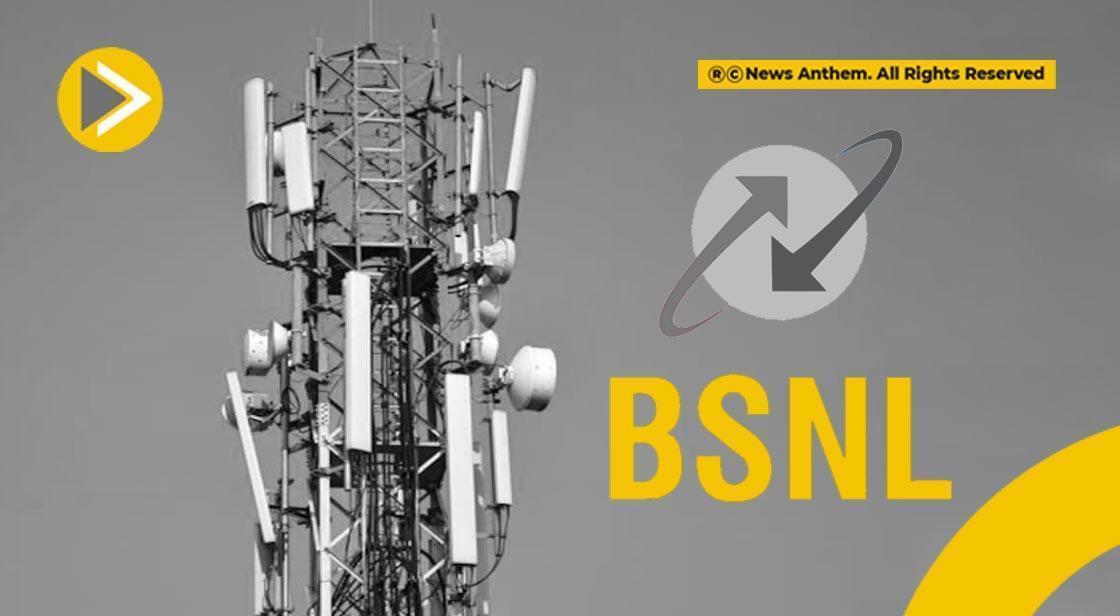BSNL Teams Up with Department of Posts to Boost Rural Connectivity

News Synopsis
The Department of Posts (DoP) and Bharat Sanchar Nigam Limited (BSNL) have signed a landmark Memorandum of Understanding (MoU) to extend the telecom giant’s reach across India. This collaboration will enable post offices across the nation to sell BSNL SIM cards and mobile recharge services, significantly enhancing last-mile connectivity, an official release confirmed on Wednesday.
India Post and BSNL Join Hands to Boost Telecom Connectivity
Leveraging India Post’s Vast Network
India Post, with its unparalleled 1.65 lakh post offices, is one of the largest service networks in the world. Its deep penetration into both rural and urban regions makes it a strategic partner for Bharat Sanchar Nigam Limited (BSNL). Through this collaboration, India Post will serve as an extended arm of BSNL, ensuring that telecom services become easily accessible and affordable for millions.
"This initiative aims to make BSNL's telecom services more accessible and affordable, particularly for citizens in the remotest parts of the country who often struggle with limited connectivity," the release highlighted.
Bridging the Digital Divide
The move is seen as a critical step in advancing Digital India, improving financial inclusion, and promoting socio-economic development. By enabling post offices to act as Points of Sale (PoS) for BSNL SIMs and recharges, the initiative will empower rural households with modern communication services.
The Proof of Concept (PoC) was earlier conducted in Assam, where it yielded significant success. This pilot project has validated the model as scalable for nationwide implementation.
Roles and Responsibilities
As per the agreement:
-
BSNL will supply SIM card stock and provide necessary training.
-
Department of Posts will facilitate onboarding of new customers and ensure safe, standardized transactions.
This collaboration is expected to serve as a robust distribution channel that can transform mobile accessibility in underserved areas.
History of BSNL
Bharat Sanchar Nigam Limited (BSNL) is a state-owned telecommunications company in India, and its history is deeply intertwined with the evolution of the country's communication infrastructure, a legacy that traces back to the British Raj.
BSNL Early Beginnings (19th Century - 2000)
-
19th Century Foundation: The foundation of India's telecom network was laid by the British. The first telegraph line was established in 1851 between Kolkata and Diamond Harbour. This service was later opened to the public in 1854.
-
Indian Telegraph Act: In 1885, the Indian Telegraph Act was passed by the British Imperial Legislative Council, laying the legal groundwork for telecommunications in the country.
-
Post-Independence: For much of the 20th century, telecommunications in India were run as a government department. In 1975, the Department of Telecom (DoT) was separated from the Post and Telegraph (P&T) Department.
-
The Dawn of Competition: In 1985, Mahanagar Telephone Nigam Limited (MTNL) was carved out of the DoT to provide telecom services in the major metropolitan areas of Delhi and Mumbai. This was a precursor to the liberalization of the telecom sector.
-
Liberalization and Corporatization: The 1990s saw the Indian government open up the telecom sector to private investment. To create a level playing field, it became necessary to separate the government's policymaking wing (DoT) from its operational wing.
The Birth of BSNL (2000 - 2005)
-
Incorporation: On October 1, 2000, the operational wing of the DoT was officially corporatized and renamed Bharat Sanchar Nigam Limited (BSNL). The new Public Sector Undertaking (PSU) took over the business of providing telecom services across the country, with the exception of Delhi and Mumbai, which remained under MTNL's purview.
-
Rapid Growth: In its early years, BSNL was a dominant force. It quickly expanded its services, offering a comprehensive range of telecom solutions, including landlines, GSM mobile services (under the "CellOne" brand), and broadband internet. For many years, BSNL was the sole provider of fixed-line services and had the widest network reach, particularly in rural and remote areas. Its landline service was the largest in India for a long time.
Conclusion
The partnership between the Department of Posts and BSNL is more than just a business collaboration—it represents a major step towards bridging the digital divide in India. With India Post’s unmatched rural reach and BSNL’s telecom infrastructure, this initiative is set to ensure affordable, reliable connectivity to millions, especially in remote villages. If implemented nationwide, this model could become a cornerstone in India’s digital and inclusive growth journey.
You May Like









